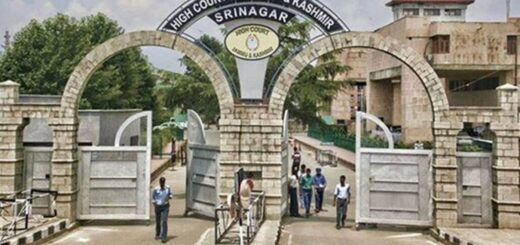The right to a compassionate appointment is not a requirement for employees who die while on duty; it must be evaluated carefully based on different factors, according to the Supreme Court.

The Supreme Court stated that the right to a compassionate appointment is not an automatic benefit for the family of an employee who dies while on duty. This appointment should not be given without careful evaluation or a selection process. The Court was reviewing a Civil Appeal from the son of a deceased Constable in the Haryana Police, who was seeking a job on compassionate grounds after his father passed away in 1997. The three-Judge Bench, which included Justice Abhay S. Oka, Justice Ahsanuddin Amanullah, and Justice Augustine George Masih, noted that claiming a compassionate appointment as a guaranteed right is incorrect. They emphasized that such appointments require thorough examination based on specific criteria, aimed at assisting families facing sudden financial hardship after losing their main provider.
The Bench further explained that compassionate appointments are meant to support families in severe financial distress, but the claimant must meet the established criteria outlined in the relevant policies or rules for these appointments. When the Appellant was seven years old, his father, a Constable, passed away while on duty. The widow of another Constable who died alongside the Appellant’s father received a compassionate appointment as a Constable after applying for it. The Appellant’s mother, who could not read or write, was unable to apply for a job herself, so she sought a compassionate appointment for her son instead. In 1998, the Director General of Police (DGP) in Haryana sent a letter to the Superintendent of Police, instructing that the Appellant’s name be added to the Minor’s Register. This showed that the authorities intended to reserve a job for the Appellant later, as he was the minor child of a deceased employee, according to the relevant policy.
Since the Appellant was still a minor, his application was put on hold. The Superintendent of Police’s office later informed the Appellant’s mother that once he turned 18, he should contact the Welfare Inspector’s office to prepare his case. When he did approach the DGP, his claim was denied. He then took his case to the High Court, but his Writ Petition was rejected. An appeal to the Intra Court also ended in dismissal, leading him to file an appeal with the Supreme Court.
The Supreme Court stated that the concept of equality in Article 14 is based on law and can be used to support a legal claim. The State cannot be ordered to continue any illegal actions that benefit an individual or group if it goes against existing policies or rules. Additionally, an illegal order that grants rights to someone does not allow that person to make a similar claim in court, nor is the court required to accept it. The court will not force authorities to repeat such illegal actions.
The Court emphasized that allowing such claims would undermine justice and lead to chaos and lawlessness. It cannot ignore the law to grant rights or claims that lack legal support. Equity cannot be used to provide benefits without a legal foundation.
Furthermore, the Court explained that if there are no policies or rules for compassionate appointments, such appointments cannot be made. These policies are designed to help families in distress after losing their main provider, and they create exceptions to the general rules based on the services of the deceased employee and the family’s sudden change in circumstances.
The Court stated that the aim of these policies is to provide immediate support to the family. It decided that it would be fair to allow the widow of the deceased government worker, who is also the mother of the Appellant, one chance to request a lump sum ex-gratia compensation. The Court noted that if the lump sum is granted and paid within the specified time, it will not earn any interest. However, if a decision is delayed and she is found eligible, interest at a rate of 6 percent per year will be added from the date of her request until the payment is made. As a result, the Apex Court concluded the Appeal.
Cause Title: Tinku v. State of Haryana & Ors. (Neutral Citation: 2024 INSC 867)









